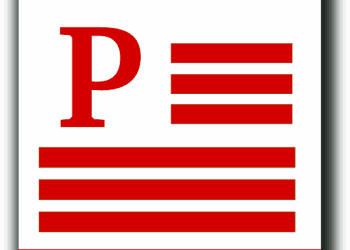In today’s competitive job market, having the right skills is not always enough. Employers want to see more—they want to understand who you are, what you stand for, and how you can contribute uniquely to their organization. This is where personal branding comes into play. Building a strong personal brand isn’t about flashy marketing or overhyping yourself; it’s about presenting your authentic professional identity in a way that connects with others and opens career opportunities.
This article will walk you through the essentials of creating a personal brand that stands out. You’ll learn why it matters, what steps to take, and how to maintain it effectively throughout your career journey.
What Is a Personal Brand and Why It Matters
Your personal brand is essentially the perception others have of you based on your actions, communication, and online presence. It reflects your reputation and the unique combination of skills, experiences, and values that you bring to the table. Think of it as your professional fingerprint—something that distinguishes you from every other candidate or professional in your field.
A well-crafted personal brand helps you:
- Build credibility and trust
- Increase visibility among industry peers and hiring managers
- Create connections that can lead to new opportunities
- Communicate your value clearly and confidently
Without a defined personal brand, you risk blending into a crowd of applicants or professionals with similar qualifications. With one, you make yourself memorable and relevant.
Steps to Build a Personal Brand That Works
1. Define Your Unique Value Proposition
Before you can share your personal brand, you need to understand what makes you unique. Reflect on your skills, achievements, passions, and professional goals. Ask yourself:
- What problems do I solve?
- What strengths do others frequently recognize in me?
- What motivates me in my work?
Writing down your answers will give you a clear picture of the value you offer. This value proposition should be concise and easy to communicate in conversations, social profiles, or written materials.
2. Align Your Online Presence
Your digital footprint is often the first thing recruiters or potential employers see. Consistency across platforms is crucial. This includes LinkedIn, professional websites, portfolios, and even social media profiles like Twitter or Instagram if they relate to your career.
Use a professional photo, craft a headline that reflects your unique value, and ensure your work history or project descriptions reinforce your brand message. Regularly share insights or content relevant to your field to demonstrate expertise and engagement.
3. Network With Purpose
Building a personal brand doesn’t happen in isolation. Connecting with others in your industry, attending events, and participating in online discussions helps you expand your reach. When networking, focus on genuine interactions rather than simply exchanging contacts.
Share your story and listen to others. Authentic relationships are far more valuable and can lead to referrals, mentorship, or collaborations.
The Role of Resumes in Your Personal Brand
A personal brand isn’t limited to your online presence or networking efforts. It also extends to the documents you submit during a job search—especially your resume. A resume is a tangible representation of your brand. It highlights your skills, experiences, and accomplishments in a structured way that speaks directly to hiring managers.
To make the most impact, you need to build personalized resumes with Resume Now or similar tools that tailor your resume for each job application. This approach ensures that your resume aligns with the company’s needs and showcases the most relevant parts of your professional story.
A strong resume complements your personal brand by reinforcing your key messages and demonstrating your fit for the role. When crafted carefully, it helps you stand out in applicant pools and increases your chances of landing interviews.
Maintaining and Growing Your Personal Brand
Stay Consistent
Your personal brand should evolve with your career, but it must always remain consistent at its core. Use the same tone, messaging, and visual elements in your communications. Inconsistency can confuse your audience or damage trust.
Keep Learning and Sharing
Continuous growth is part of maintaining a strong brand. Take courses, attend workshops, or read industry news to stay current. Share what you learn with your network through posts, blogs, or speaking opportunities. Being a reliable source of knowledge adds value and reinforces your expertise.
Solicit Feedback
Ask trusted colleagues, mentors, or friends for honest feedback on how you present yourself professionally. Sometimes others see strengths or gaps that you may miss. Use their insights to refine your brand and improve how you communicate it.
Avoiding Common Pitfalls
Building a personal brand requires effort, but it’s important to avoid some common mistakes:
- Overpromising: Be honest about your skills and experience. Exaggerations may lead to lost trust.
- Neglecting Offline Presence: While online branding is key, don’t ignore face-to-face interactions and professional behavior in person.
- Ignoring Negative Feedback: Address criticism constructively rather than dismissing it.
- Being Inconsistent: Mixed messages or fluctuating activity can weaken your brand’s impact.
Final Thoughts
Building a personal brand is a strategic process that requires self-awareness, consistent effort, and authentic communication. It’s not about becoming someone you’re not—it’s about highlighting your true professional identity in a way that resonates with others. A strong personal brand opens doors by making you memorable, trustworthy, and relevant.
As you develop your brand, remember to integrate all facets of your professional life—from online profiles to networking and job application materials. With clarity and persistence, your personal brand will become a powerful tool to advance your career and create lasting opportunities.



